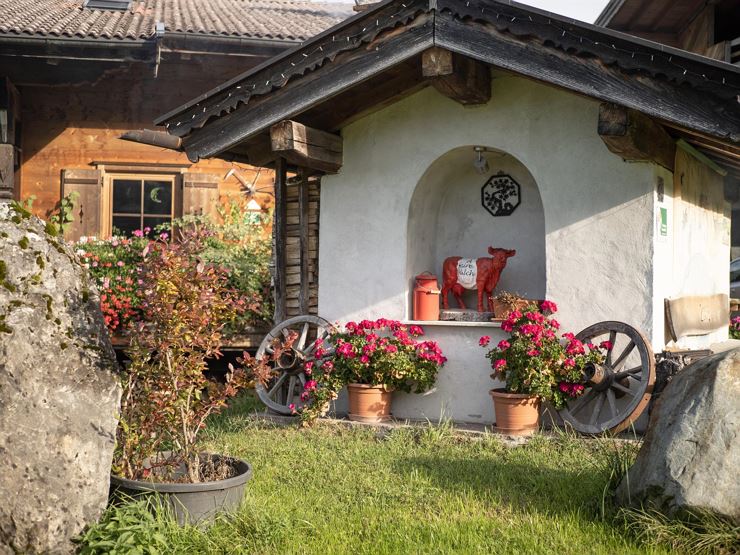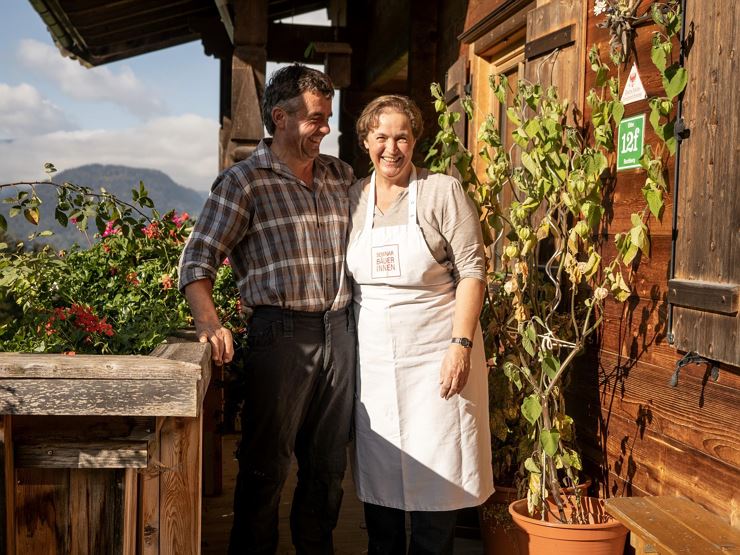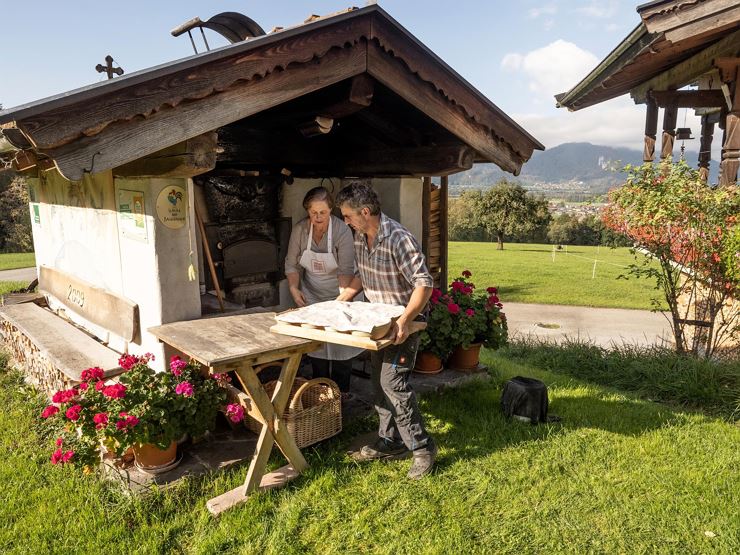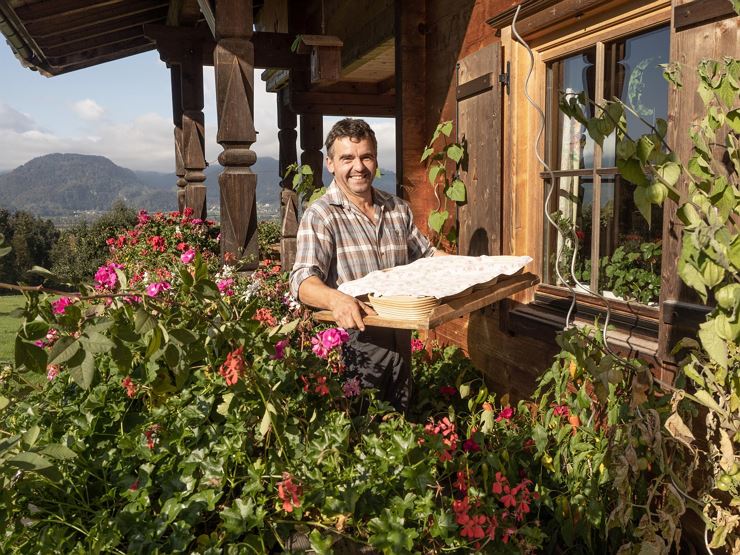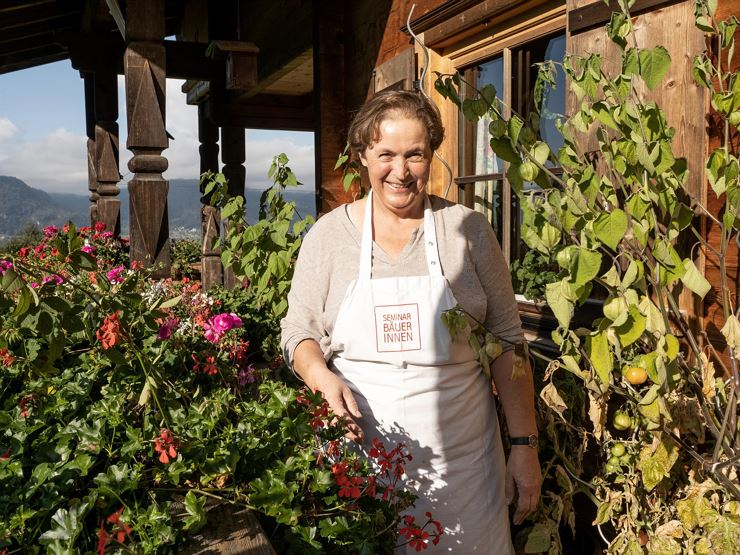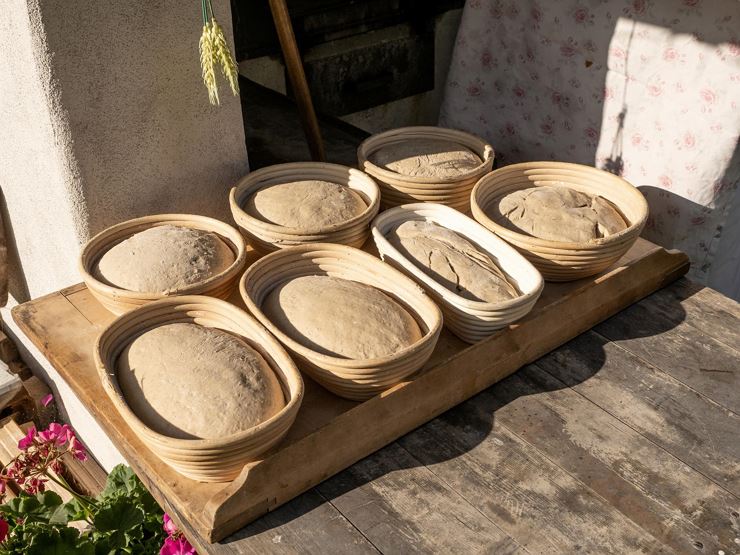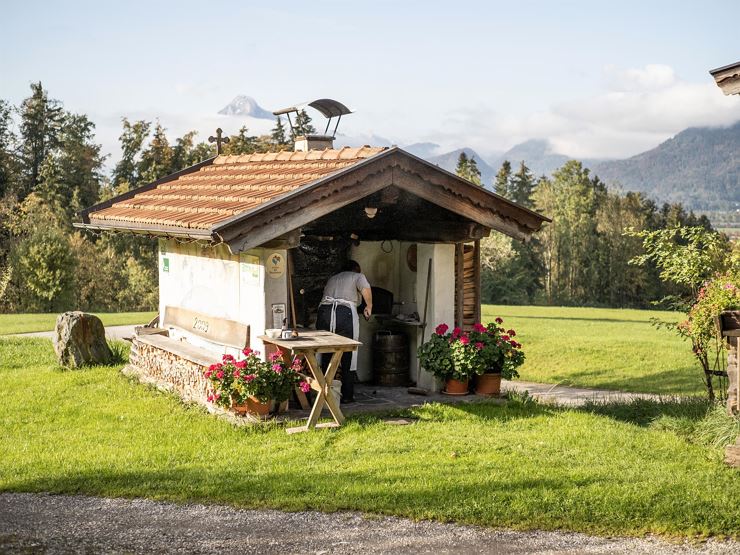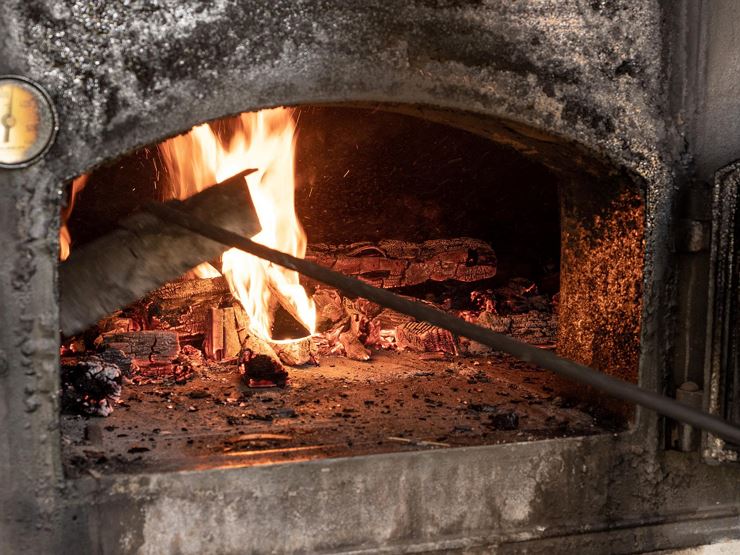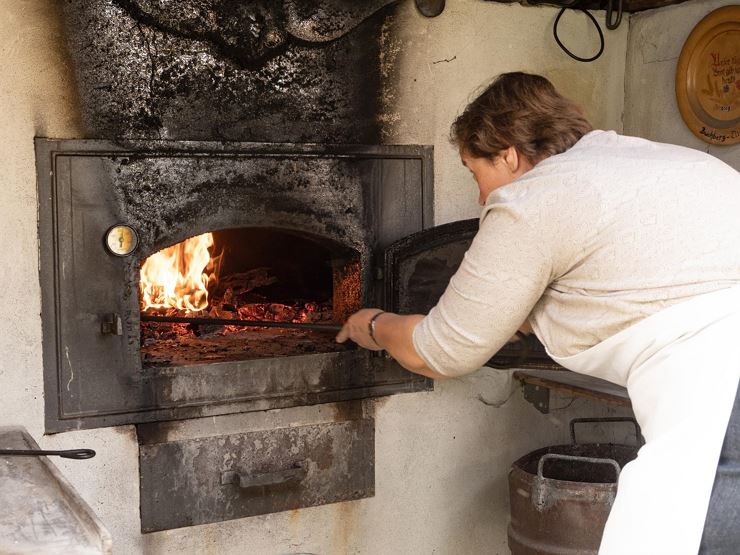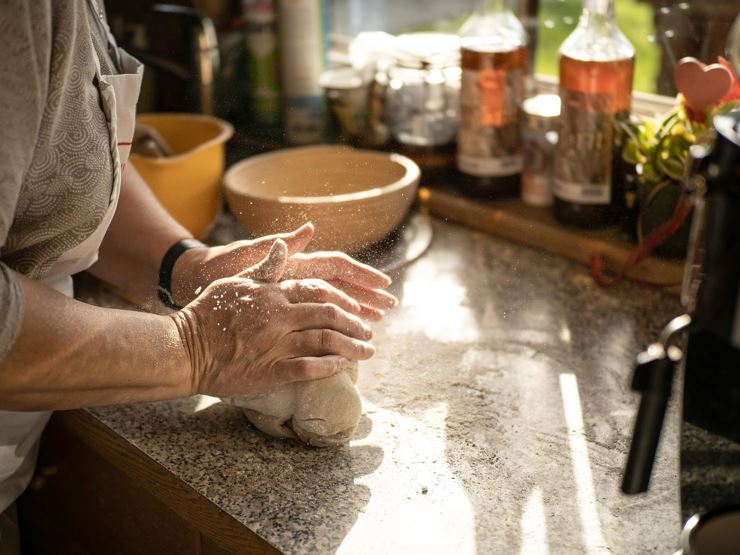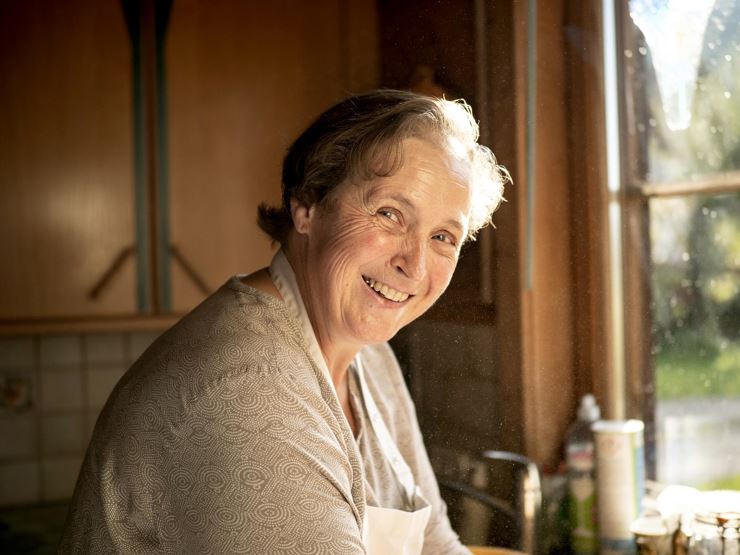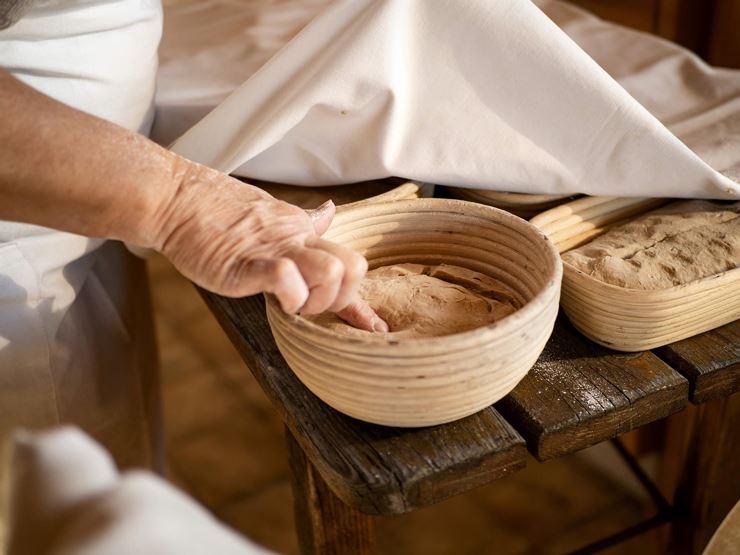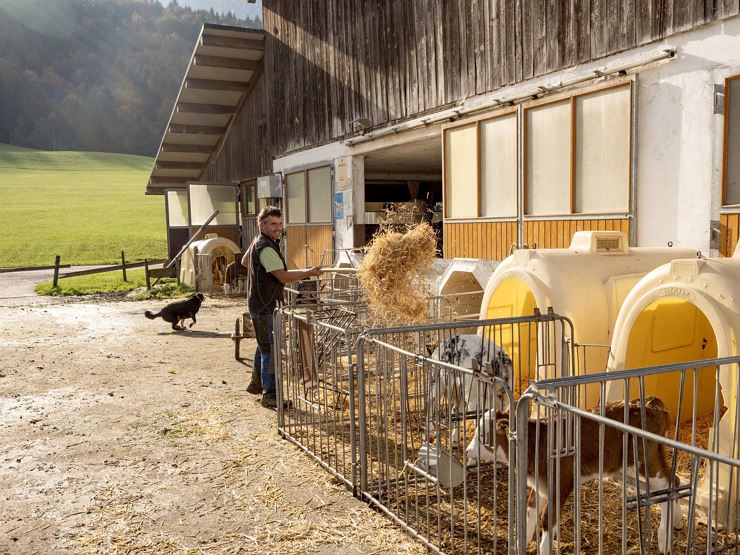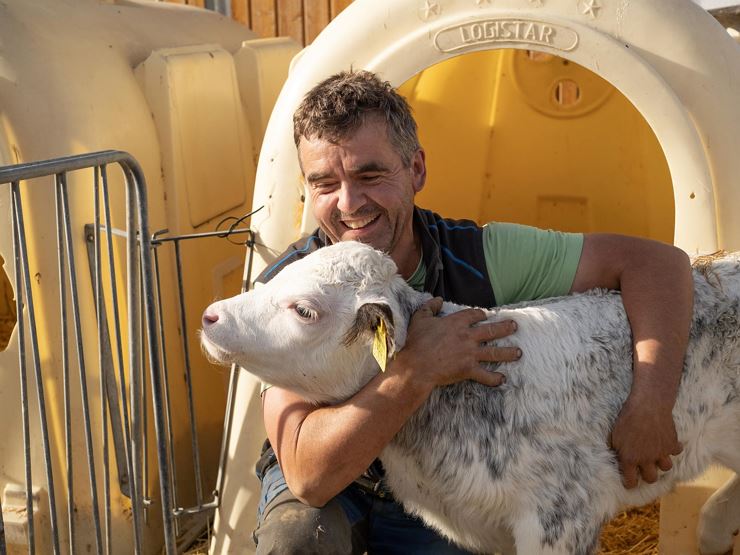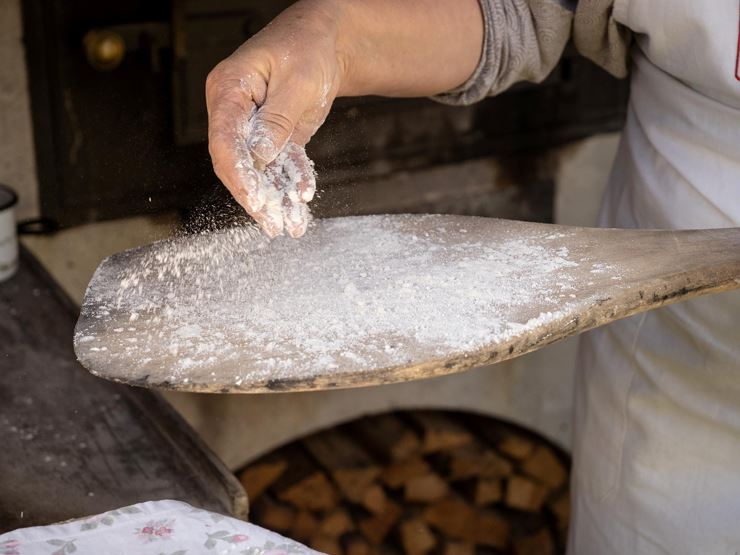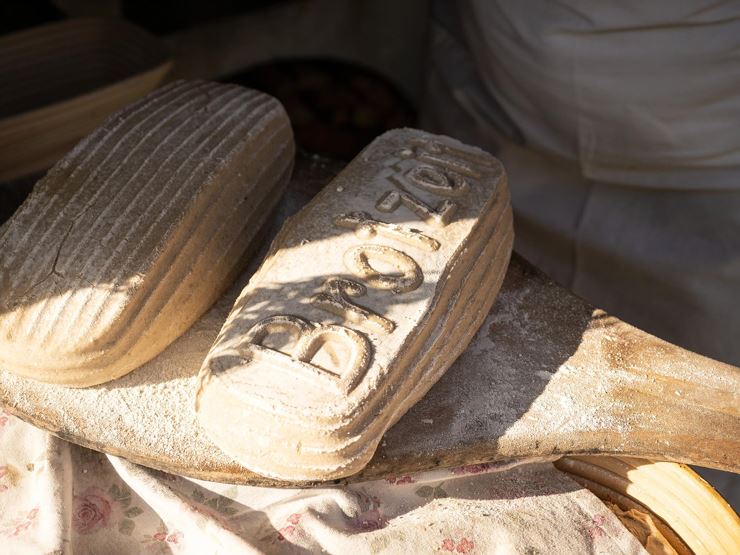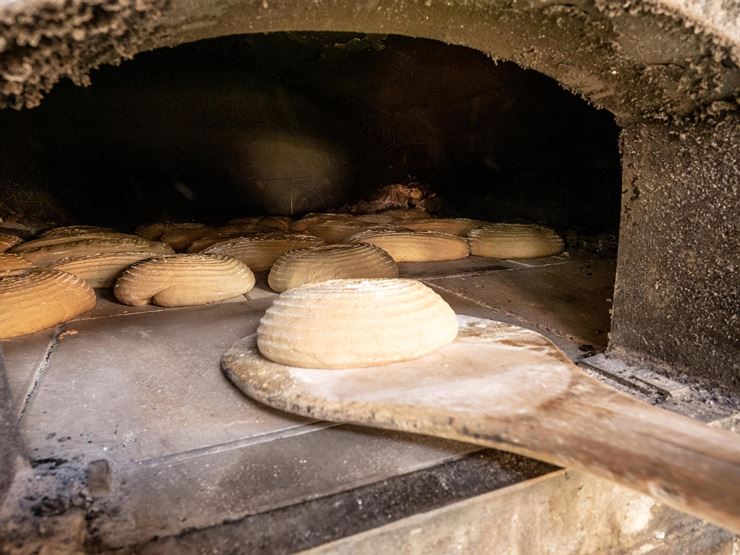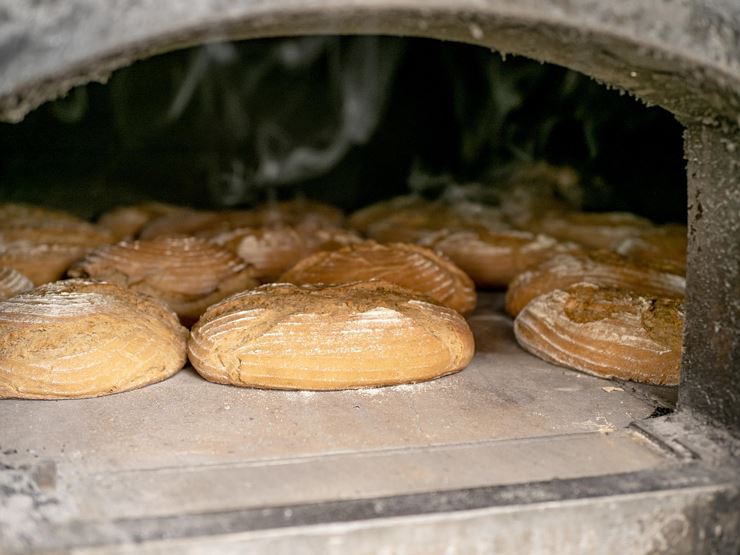Reischerhof - Ebbs
 © Hannes Dabernig
© Hannes Dabernig © Hannes Dabernig
© Hannes Dabernig © Hannes Dabernig
© Hannes Dabernig © Hannes Dabernig
© Hannes Dabernig © Hannes Dabernig
© Hannes Dabernig © Hannes Dabernig
© Hannes Dabernig © Hannes Dabernig
© Hannes Dabernig © Hannes Dabernig
© Hannes Dabernig © Hannes Dabernig
© Hannes Dabernig © Hannes Dabernig
© Hannes Dabernig © Hannes Dabernig
© Hannes Dabernig © Hannes Dabernig
© Hannes Dabernig © Hannes Dabernig
© Hannes Dabernig © Hannes Dabernig
© Hannes Dabernig © Hannes Dabernig
© Hannes Dabernig © Hannes Dabernig
© Hannes Dabernig © Hannes Dabernig
© Hannes Dabernig © Hannes Dabernig
© Hannes Dabernig © Hannes Daberning
© Hannes Daberning © Hannes Dabernig
© Hannes Dabernig
Margit and Sebastian Glarcher run Reischerhof, an organic farm in Ebbs. About 30 years ago, it was converted to an organic farm when Sebastian's parents still managed it. Margit also comes from a farming background in Wildschönau and has known the craft of farming since childhood.
However, she initially trained as a dental assistant and dental hygienist. Margit Glarcher worked for a while for the state, responsible for dental prophylaxis in schools and kindergartens. Since 1996, she has been at Reischerhof, running the organic farm with her husband. Together, they have three children, two sons, and a daughter, and it is already decided that their eldest son, Florian, will take over the farm. All three children also actively help out whenever needed, which is often the case on a farm. Reischerhof is a hay milk farm that supplies the Plangger dairy and the brand "Zurück zum Ursprung."
Strict Controls of an Organic Farm
The Glarcher family manages about 35 cows and their offspring. The cattle stay at the farm year-round as there is enough space around the farm and in the barn for the necessary exercise. As an organic farm, they are required to keep meticulous records of animal husbandry. For example, they must document the animals' outdoor access and what feed is given. It must also be precisely recorded if animals need medical treatment. In this regard, Margit Glarcher fortunately has little need. She is well-versed in using homeopathic remedies for animals, having completed training with an animal naturopath and attending regular workshops on the subject. In essence, there is little difference between applying homeopathic remedies to humans or animals. It helps the animals gently in various situations. Thanks to this herbal support, she rarely needs the help of a veterinarian and has minimal medical treatments for her animals. Margit is a trained herbal guide, with her own garden, raised beds with various herbs, and an orchard. She grows many plant varieties, which she uses for homeopathic applications. The orchard harvest also provides fresh compote, delicious jams, and pure apple juice, which her children particularly love.
Agriculture Goes to School
There are 16 seminar farmers in Tyrol who participate in the "Agriculture Goes to School" project. The training to become a seminar farmer is a prerequisite. This allows them to hold school sessions on topics such as grain, milk, apples, eggs, shopping & regionality, or even cooking classes where, among other things, a Tyrolean burger is prepared. Margit Glarcher works in schools in Kössen, Niederndorf, Langkampfen, and Kufstein. Not all topics are covered every year at all schools; it depends on the curriculum. During these school sessions, usually in biology class, she often brings samples from the farm that match the topic. Teachers are present, and the topics are further explored. Margit finds that this form of "school on the farm" is more in demand than having school classes visit her farm. However, through the Kufstein Holiday Express, she often hosts children, baking bread in her wood oven or organizing a farm rally – a favorite among the kids – with activities like rubber boot throwing and milking rubber udders. Her herb beds also feature engaging and exciting games for children, such as scent memory, scavenger hunts, or the herb pyramid. These are various programs she devised to teach children about the origins of food and nature playfully.
Through her visits to schools, she has often found that children do not know how many eggs hens lay or how often a cow needs to be milked. She feels that with the intensive media consumption, children are increasingly isolated and lack time in and connection to nature. Many children tell her that meals are rarely cooked at home, their days are scheduled, but they lack time outdoors and independent exploration. With her work in schools and through the Holiday Express, she hopes to counteract this a little. She feels that younger mothers, in particular, are slowly beginning to value regionality, authenticity, and naturalness more. She hopes this indicates a positive trend reversal.
Open by Appointment Only!
Margit Glarcher from Reischerhof – Seminar Farmer for "Agriculture Goes to School"Margit and Sebastian Glarcher run Reischerhof, an organic farm in Ebbs. About 30 years ago, it was converted to an organic farm when Sebastian's parents still managed it. Margit also comes from a farming background in Wildschönau and has known the craft of farming since childhood.
However, she initially trained as a dental assistant and dental hygienist. Margit Glarcher worked for a while for the state, responsible for dental prophylaxis in schools and kindergartens. Since 1996, she has been at Reischerhof, running the organic farm with her husband. Together, they have three children, two sons, and a daughter, and it is already decided that their eldest son, Florian, will take over the farm. All three children also actively help out whenever needed, which is often the case on a farm. Reischerhof is a hay milk farm that supplies the Plangger dairy and the brand "Zurück zum Ursprung."
Strict Controls of an Organic Farm
The Glarcher family manages about 35 cows and their offspring. The cattle stay at the farm year-round as there is enough space around the farm and in the barn for the necessary exercise. As an organic farm, they are required to keep meticulous records of animal husbandry. For example, they must document the animals' outdoor access and what feed is given. It must also be precisely recorded if animals need medical treatment. In this regard, Margit Glarcher fortunately has little need. She is well-versed in using homeopathic remedies for animals, having completed training with an animal naturopath and attending regular workshops on the subject. In essence, there is little difference between applying homeopathic remedies to humans or animals. It helps the animals gently in various situations. Thanks to this herbal support, she rarely needs the help of a veterinarian and has minimal medical treatments for her animals. Margit is a trained herbal guide, with her own garden, raised beds with various herbs, and an orchard. She grows many plant varieties, which she uses for homeopathic applications. The orchard harvest also provides fresh compote, delicious jams, and pure apple juice, which her children particularly love.
Agriculture Goes to School
There are 16 seminar farmers in Tyrol who participate in the "Agriculture Goes to School" project. The training to become a seminar farmer is a prerequisite. This allows them to hold school sessions on topics such as grain, milk, apples, eggs, shopping & regionality, or even cooking classes where, among other things, a Tyrolean burger is prepared. Margit Glarcher works in schools in Kössen, Niederndorf, Langkampfen, and Kufstein. Not all topics are covered every year at all schools; it depends on the curriculum. During these school sessions, usually in biology class, she often brings samples from the farm that match the topic. Teachers are present, and the topics are further explored. Margit finds that this form of "school on the farm" is more in demand than having school classes visit her farm. However, through the Kufstein Holiday Express, she often hosts children, baking bread in her wood oven or organizing a farm rally – a favorite among the kids – with activities like rubber boot throwing and milking rubber udders. Her herb beds also feature engaging and exciting games for children, such as scent memory, scavenger hunts, or the herb pyramid. These are various programs she devised to teach children about the origins of food and nature playfully.
Through her visits to schools, she has often found that children do not know how many eggs hens lay or how often a cow needs to be milked. She feels that with the intensive media consumption, children are increasingly isolated and lack time in and connection to nature. Many children tell her that meals are rarely cooked at home, their days are scheduled, but they lack time outdoors and independent exploration. With her work in schools and through the Holiday Express, she hopes to counteract this a little. She feels that younger mothers, in particular, are slowly beginning to value regionality, authenticity, and naturalness more. She hopes this indicates a positive trend reversal.
Open by Appointment Only!

